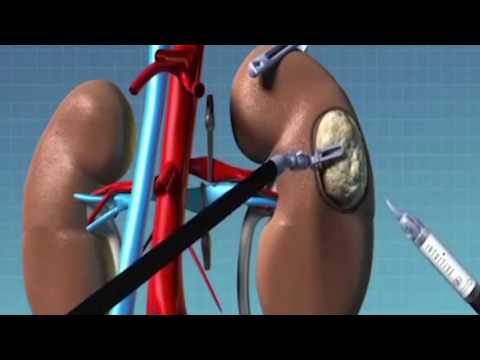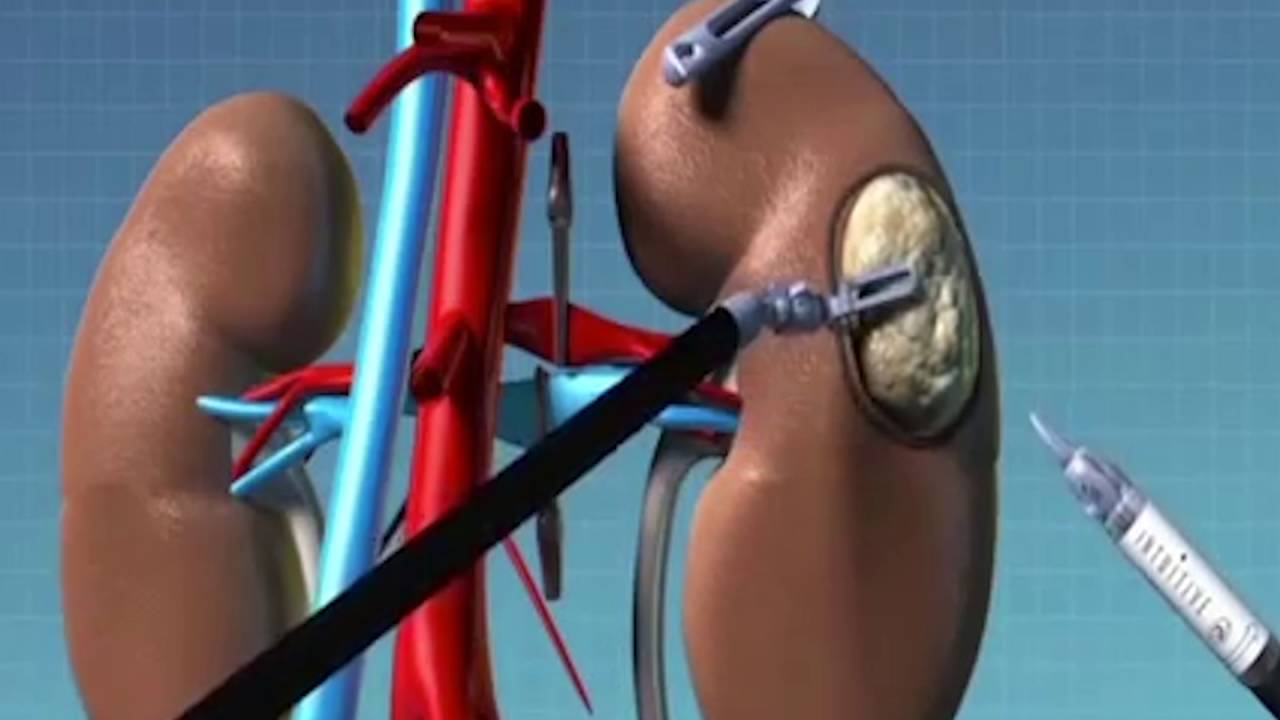Kidney cancer is a captivating and intricate disease that demands our attention. This enigmatic condition affects the vital organs responsible for filtering waste and fluids from our bodies, namely the kidneys. With its mysterious origins and diverse manifestations, kidney cancer poses a significant threat to our overall well-being. Understanding its intricacies and potential risks can empower us to take proactive steps towards prevention and early detection. Delving into the complex world of kidney cancer unveils a compelling battle between life and disease, where research, innovation, and treatment play crucial roles in determining the outcome. From the mesmerizing interplay of genes and environmental factors to the awe-inspiring advancements in medical technology, the fight against kidney cancer is as captivating as it is relentless. By exploring the fascinating realms of diagnosis, symptoms, and treatment options, we can gain valuable insights into this formidable foe and the potential avenues for hope and healing. Embark on an enlightening journey into the captivating world of kidney cancer, where scientific breakthroughs and unwavering determination converge to redefine the boundaries of possibility.

Understanding Kidney Cancer
| Aspect | Information |
|---|---|
| Definition | Kidney cancer, also known as renal cancer, occurs when there is an uncontrolled growth of abnormal cells in the kidneys. These malignant cells form tumors that can invade surrounding tissues and potentially spread to other parts of the body. |
| Types | Kidney cancer can be classified into various types, including renal cell carcinoma (RCC) which accounts for approximately 90% of cases, transitional cell carcinoma (TCC), and Wilms tumor (a rare type mainly affecting children). RCC further consists of subtypes such as clear cell, papillary, chromophobe, and collecting duct carcinoma, each with distinct characteristics and treatment approaches. |
| Causes | The exact cause of kidney cancer remains unknown; however, certain risk factors have been identified. These include smoking, obesity, high blood pressure, family history of kidney cancer, exposure to certain chemicals or substances (such as asbestos or cadmium), and certain genetic conditions like von Hippel-Lindau disease. |
| Symptoms | Early stages of kidney cancer often do not present noticeable symptoms. However, as the disease progresses, common signs may include blood in urine, persistent pain in the back or side, a palpable mass or lump in the abdomen, fatigue, unexplained weight loss, fever, and night sweats. It is crucial to consult a healthcare professional if any concerning symptoms arise. |
| Diagnosis | Diagnosing kidney cancer typically involves a combination of physical examinations, imaging tests like CT scans, MRIs, or ultrasounds, and laboratory tests to analyze blood and urine samples. In some cases, a biopsy may be performed to confirm the presence of cancerous cells and determine their specific characteristics. |
| Treatment | Available treatment options depend on the stage and type of kidney cancer, as well as the overall health of the patient. Common approaches include surgery (partial or complete removal of the affected kidney), radiation therapy, targeted therapy using drugs that specifically target cancer cells, immunotherapy to stimulate the body’s immune system, and in some cases, chemotherapy. |
| Prognosis | The prognosis for kidney cancer varies based on factors such as the stage at diagnosis, the aggressiveness of the cancer, the patient’s overall health, and the effectiveness of the chosen treatment. Early detection and intervention often yield better outcomes, while advanced stages may have a lower survival rate. Regular follow-up care and monitoring are crucial to managing the disease. |
“The Power Duo: Kidneys and the Battle Against Cancer”
Understanding Kidney Cancer: Causes, Symptoms, and Treatment
Kidney cancer is a type of cancer that develops in the kidneys, which are two bean-shaped organs located on either side of the spine. It is considered one of the most common types of cancer, with an estimated 73,750 new cases diagnosed in the United States in 2020 alone. Kidney cancer occurs when abnormal cells in the kidneys grow and divide uncontrollably, forming a tumor. In this article, we will delve into the causes, symptoms, and treatment options for kidney cancer.
Causes of Kidney Cancer
The exact cause of kidney cancer is still unknown, but there are certain factors that may increase the risk of developing this disease. Some of these risk factors include:
1. Smoking: Cigarette smoking is a major risk factor for kidney cancer. Smokers are twice as likely to develop kidney cancer compared to non-smokers.
2. Obesity: Being overweight or obese increases the risk of kidney cancer, as excess body weight can cause hormonal changes that promote the development of cancer cells.
3. High blood pressure: Uncontrolled high blood pressure may damage the blood vessels in the kidneys, increasing the risk of developing kidney cancer.
4. Family history: Having a family history of kidney cancer can increase the likelihood of developing the disease. Certain genetic conditions, such as Von Hippel-Lindau disease, also predispose individuals to kidney cancer.
Symptoms of Kidney Cancer
Early-stage kidney cancer often does not cause any noticeable symptoms. However, as the disease progresses, the following symptoms may occur:
1. Blood in urine: One of the most common signs of kidney cancer is blood in the urine, also known as hematuria. The urine may appear pink, red, or dark brown.
2. Flank pain: Persistent pain in the side or back, just below the ribs, is another common symptom of kidney cancer. The pain may be dull or sharp.
3. Weight loss: Unexplained weight loss and loss of appetite can be indicative of advanced kidney cancer.
4. Fatigue: Feeling constantly tired and lacking energy can be a symptom of kidney cancer.
It is important to note that these symptoms can also be caused by other conditions, so it is essential to consult a healthcare professional for a proper diagnosis.
Treatment Options for Kidney Cancer
The treatment of kidney cancer depends on various factors, including the stage and extent of the disease, overall health, and individual preferences. The following are common treatment options for kidney cancer:
1. Surgery: Surgery is the primary treatment for kidney cancer. In many cases, the entire affected kidney is removed (nephrectomy). In some cases, only the tumor and a portion of the kidney are removed (partial nephrectomy).
2. Targeted therapy: Targeted therapy uses drugs that specifically target cancer cells, blocking their growth and spread. These medications interfere with specific pathways or proteins involved in the growth of kidney cancer cells.
3. Immunotherapy: Immunotherapy stimulates the body’s immune system to recognize and destroy cancer cells. It can be used as a standalone treatment or in combination with other therapies.
4. Radiation therapy: Radiation therapy uses high-energy beams to kill cancer cells. It is usually used in cases where surgery is not an option or to relieve symptoms in advanced kidney cancer.
5. Chemotherapy: Although chemotherapy is not typically used as the first-line treatment for kidney cancer, it may be used in specific cases, especially when the cancer has spread to other parts of the body.
Prevention and Outlook
While it is not always possible to prevent kidney cancer, there are certain lifestyle choices that can reduce the risk. These include:
– Avoiding tobacco: Quitting smoking and avoiding secondhand smoke can significantly reduce the risk of kidney cancer.
– Maintaining a healthy weight: Regular exercise and a balanced diet can help prevent obesity, which is a risk factor for kidney cancer.
– Controlling blood pressure: Regular check-ups and lifestyle modifications can help manage high blood pressure and reduce the risk of kidney cancer.
The outlook for kidney cancer varies depending on the stage at diagnosis and the individual’s overall health. Early detection and treatment offer the best chances of successful outcomes.
In conclusion, kidney cancer is a prevalent form of cancer that affects thousands of individuals each year. Understanding the causes, symptoms, and treatment options is crucial for early detection and effective management of this disease. By being aware of the risk factors and making healthy lifestyle choices, individuals can reduce their chances of developing kidney cancer.

